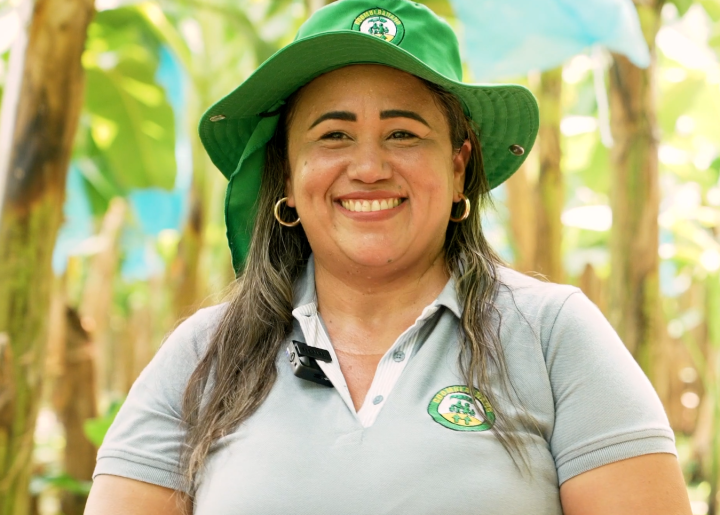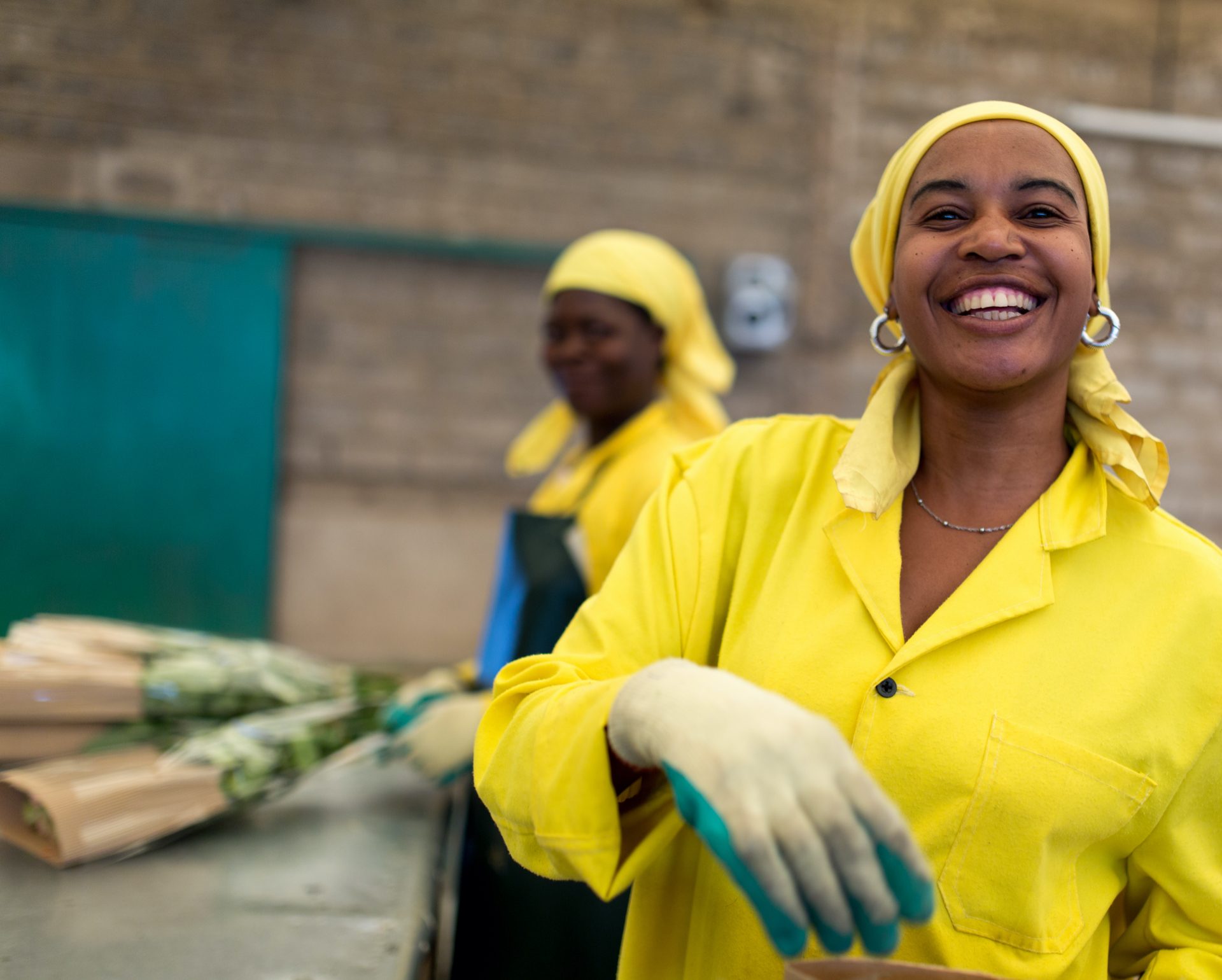Fairtrade and Organic Go Hand in Hand

Some pairings just make sense. Peanut butter and jelly. Simon and Garfunkel. While each has its virtues individually, together they add up to something even better. Such is the case when you pair Fairtrade with organic, because each brings out the best in the other.
What’s So Great About Organic?
Next time you’re at the supermarket scratching groceries off the list, keep this little tidbit in the corner of your mind: small-scale, organic, sustainable agriculture is one of the great hopes for future food security.
For many conscientious American consumers, organic is already the preferred way to go. According to an Organic Trade Association survey, 2015 was a record-breaking year for the US organic industry with total product sales reaching $43.3 billion. Billion. Organic is also booming in Europe, and the volume of Fairtrade banana sales there has grown by 15 percent since 2012–13—thanks in large part to consumer demand.
The reasons consumers opt for organic vary. Some do it for environmental concerns while others believe it is healthier (and studies are beginning to show that may be true). While both rationales are legitimate, there’s another ethical argument in organic’s favor: when you buy organic Fairtrade products, it means you’re supporting the 56 percent of Fairtrade farmers who – like the nearly 8,000 in Sumatra’s Koperasi Baitul Qiradh Baburrayyan (KBQB) collective – are also certified organic.
Though the KBQB Fairtrade collective was formed in 1995, the farmers used herbicides—just like their fathers and grandfathers before them—until they recognized the negative effects on trees, their product, the environment and even their health. KBQB was certified organic in 2007. Sobur, a farmer member, says going organic has protected the future of thousands of coffee producers, “Coffee is our source of life, and our future is in coffee.”
A Positive Trend
The KBQB is just one of many all over the world making the shift to organic for a host of good reasons. For one thing, it makes business sense. As KBQB farmers recognized, going organic is a step away from practices that ultimately degrade the land, which means soil fertility and the ecosystems surrounding co-op communities are conserved over time.
In addition, input costs are reduced because organic farmers aren’t reliant on chemical fertilizers and pesticides. For many producer organizations, it also means a wider market for their products and helps them access a higher price.
Cotton farmers in Mali are a great example of how important that wider market can be. Beginning in 2014, the number of Fairtrade cotton farmers dropped as market prices fell below the cost of production. While farmers who sold on Fairtrade terms continued to receive the Fairtrade Minimum Price and Premium, those who were also organic certified fared even better receiving 27–60 percent above the conventional price.
Win-Win-Win
Bijumon Kurian, president of India’s Manarcadu Social Services Society (MASS) has seen firsthand the power of the Fairtrade-organic pairing. The training MASS provides farmers in sustainable farming techniques improves their lives overall because they live and work in a healthier environment while becoming equipped for newer, more lucrative markets.
Though Fairtrade is not always organic, Fairtrade International maintains a list of prohibited materials and offers a higher price for organic products to encourage transition. Kurian says that Fairtrade is unique in its purpose “to tackle poverty and empower producers and workers to take control over their lives and decisions.”
When you combine that with more stringent environmental regulations, both certifications are raised to a higher level. Kurian describes it as a win-win-win for producers, the environment and consumers, in part because the wellbeing of humans is the priority of both.
“When a product is certified both Fairtrade and organic, it gives consumers the satisfaction that they are doing something that is beneficial for the producer, the earth and for themselves.”
Around the World with Organic Fairtrade
According to Fairtrade America’s most recent Monitoring and Impact Report, 34 percent of Fairtrade coffee is also organic certified, as are 51 percent of Fairtrade bananas and 20 percent of cocoa. Peru stands out as the top Fairtrade organic origin in first place in coffee, cocoa and bananas. But Fairtrade organic continues to grow as illustrated by the top-producing nations in the 2015 Monitoring Report.
Topics
We’re in this together
Fairtrade America partners with brands on the journey to certification and beyond. We can help with everything from finding a certified supply chain to marketing your newly certified product.
Get in Touch



